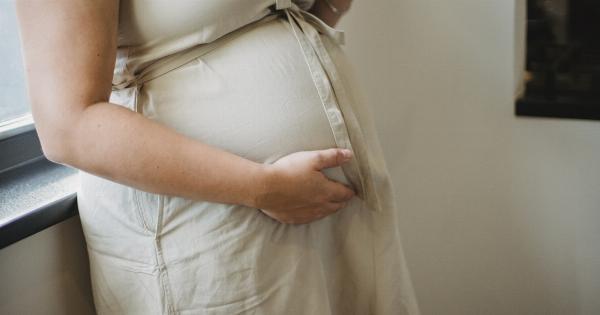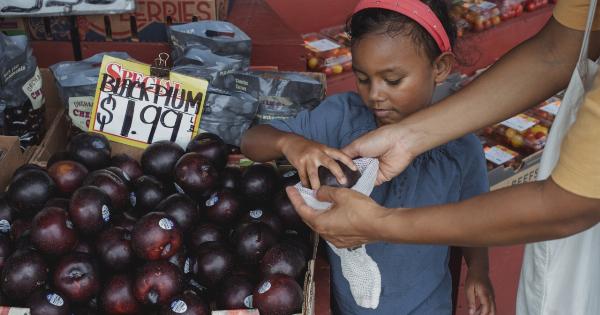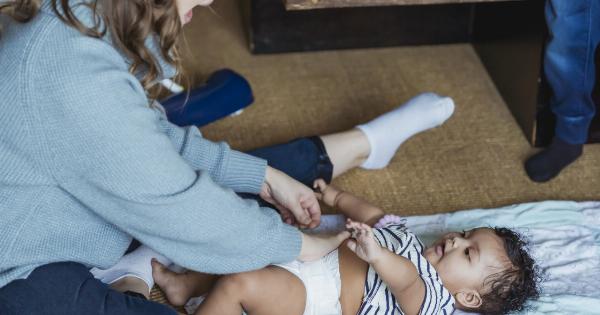Pregnancy is a beautiful journey that every woman experiences in her lifetime. It is the time when a new life grows inside a mother’s womb, and she becomes responsible for nurturing and protecting the unborn child until delivery.
It is fascinating to witness the changes that take place in a woman’s body during pregnancy. Let’s take a closer look at the incredible journey of pregnancy – A Woman’s Organs in Motion!.
The Beginning of Pregnancy
Pregnancy begins when a woman’s ovaries release an egg, which is then fertilized by sperm. The fertilized egg travels down the fallopian tube and implants itself into the wall of the uterus.
The implanted egg then begins to divide rapidly, forming a cluster of cells known as a blastocyst. Over the next nine months, the blastocyst will develop into a fetus.
First Trimester
The first trimester of pregnancy is characterized by many changes in the mother’s body. The fertilized egg develops into an embryo, and its organs, such as the heart, begin to form.
The mother may experience morning sickness, fatigue, and changes in her mood. Her uterus also starts to expand to accommodate the growing embryo.
Second Trimester
The second trimester is a time of rapid growth for the developing fetus. The mother’s uterus continues to enlarge, and she may start to feel the baby move.
The baby’s organs continue to develop, and its sex can be determined if the parents choose to do so. The mother may experience some discomforts such as backaches and leg cramps.
Third Trimester
The third trimester is the final stage of pregnancy. The fetus is fully developed and ready for delivery. The mother’s body prepares for childbirth by thinning and dilating the cervix.
She may experience Braxton Hicks contractions, which are practice contractions that help to prepare the uterus for labor. The baby’s head also moves down into the pelvis in preparation for delivery.
The Long Awaited Arrival
After nine months of pregnancy, the long-awaited arrival of the baby finally happens. Labor begins, and the mother experiences contractions that help push the baby out of the birth canal.
Once the baby is born, the umbilical cord is cut, and the baby takes its first breath outside of the womb. The mother receives medical care to ensure that she recovers from delivery and is able to care for her newborn.
The Journey of a Mother’s Organs During Pregnancy
During pregnancy, a woman’s organs go through many changes to accommodate the growing fetus. The uterus, for example, expands to 500 times its regular size to accommodate the growing fetus.
The mother’s heart rate also increases by 10 to 15 beats per minute to pump more blood to the growing fetus. The kidneys also increase their workload to remove waste products from the mother and provide nutrients to the baby.
The Role of Hormones
Hormones play a crucial role in pregnancy. The hormone progesterone, for example, helps to thicken the lining of the uterus to prepare it for implantation of the fertilized egg.
It later helps to keep the uterus relaxed and prevent contractions during pregnancy. The hormone estrogen, on the other hand, helps to stimulate the growth of the baby and its organs.
Staying Healthy During Pregnancy
The health of a mother and her developing fetus is paramount during pregnancy. A mother should eat a healthy, balanced diet that provides adequate nutrients for the growing fetus.
She should also get regular prenatal care, exercise regularly, and avoid harmful substances such as alcohol and tobacco. A healthy pregnancy results in a healthy baby and promotes a positive birth experience for the mother.
In Conclusion
The journey of pregnancy is an incredible experience that every woman cherishes and remembers for the rest of her life. It is a time of tremendous physical and emotional changes that are a testament to the strength and resilience of women.
The journey of a mother’s organs during pregnancy is a beautiful and amazing phenomenon that emphasizes the wonder and beauty of life.





























